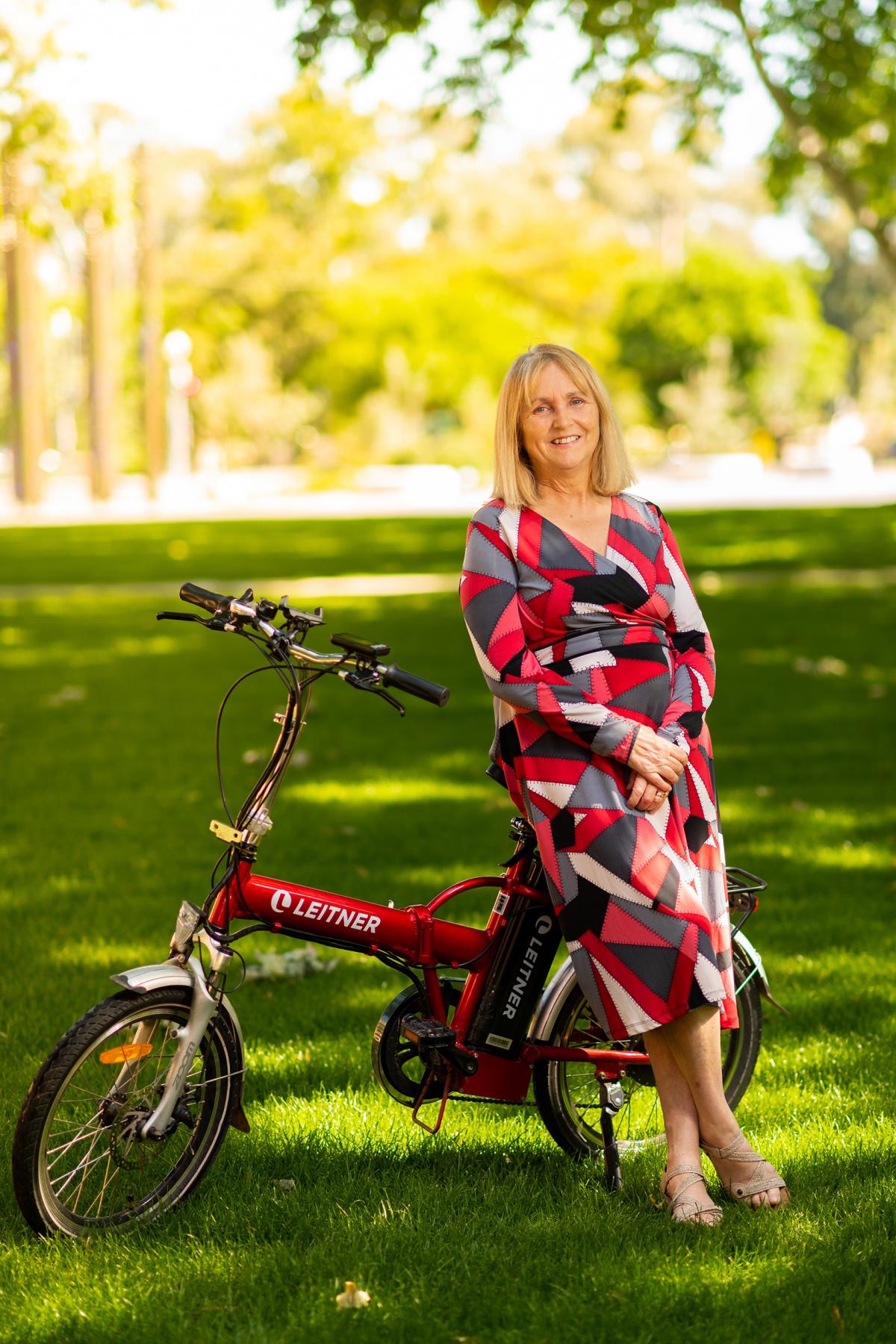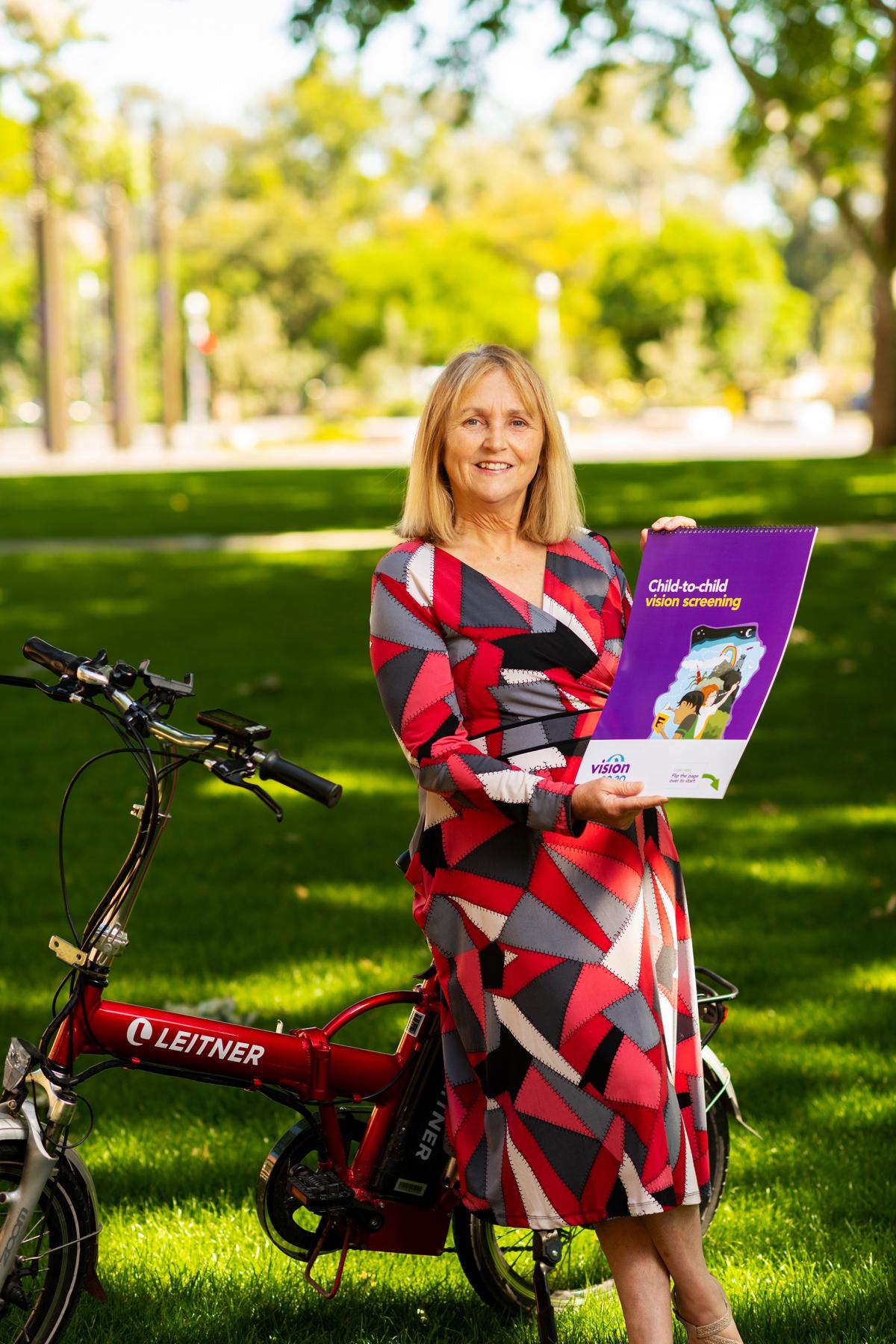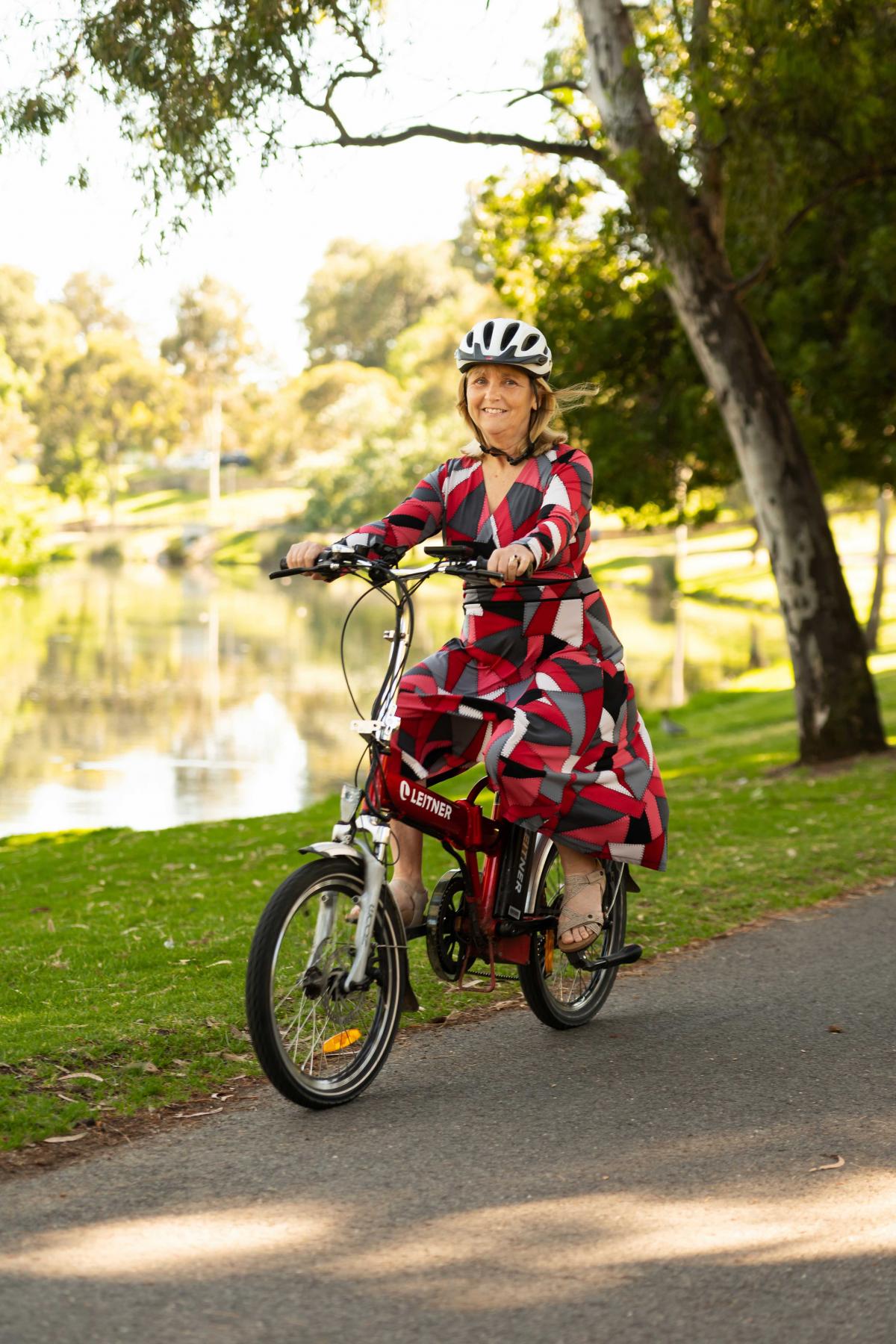Connected Conversations | Mary Butler
How does one go from medieval pottery expert to occupational therapist? Professor Mary Butler was first exposed to the field when she worked at an asylum in Scotland, where she fell in love with the value of the work occupational therapy provides. Now the Program Head of Occupational Therapy at the University of Adelaide, Mary has been instrumental to the successful delivery of the occupational therapy degree’s first student intake in 2021, relocating from New Zealand to South Australia for the opportunity. Among other things she loves about Adelaide, Mary enjoys riding her electric bike into work along the River Torrens every morning.

Please tell us a little bit about yourself.
My name is Mary Butler. I am professor of occupational therapy, and Program Head for the Occupational Therapy program in the School of Allied Health Science and Practice. I started at the University of Adelaide in January 2021, traveling over from New Zealand and, this last year, I’ve been busy setting up the new program of occupational therapy for its first student intake this year.
As an occupational therapist, I have been involved in occupational therapy practice, education, and research for over 30 years and I was the inaugural professor of occupational therapy in Otago, New Zealand. My practice is always informed by involvement with disability and I have served on many national policy groups and volunteer support groups. I have specialised, at various times, in brain injury, vision impairment, rheumatology, and mental health for children.
What has been your journey to get where you are today?
In 2020, I got an email inviting me to apply for a job at the University of Adelaide. This was not something that I had considered before, but setting up a new degree is a once-in-a-lifetime opportunity, and I could not resist the challenge. This was especially the case because occupational therapy was being established at the same time as physiotherapy and speech pathology. It is a great opportunity to embed interprofessional practice and education from the beginning of a degree.
What do you love most about working at the University of Adelaide?
There are so many amazing things about this job. There is a wonderful teaching team who are all making the transition from clinical work into academia. They have done an incredible job, and there is something about starting together as a big interprofessional team that has enabled the process of learning how to become a teacher. We couldn’t do it without the project managers, who have quietly guided us all. In addition, the students have made the brave choice to study this brand-new degree, which can be pretty scary at times, but they really enter into the spirit of things. This was very evident during OT Week back in October 2021, when staff and students came together to put on three days of activities, including cupcakes, barbeques, and interviews with some of the top occupational therapists in the country.
At the beginning of last year, we got to work with the architects to design what will be a beautiful occupational therapy hub. There was one very memorable afternoon when we sat and had a tea party in the space with Uncle Rod O‘Brien and Uncle Lewis O’Brien. They told us stories and we imagined together how the space might be used for Indigenous teaching activities with our occupational therapy students.
However, maybe the best part of the job is often cycling to work along the River Torrens, imagining what the day will bring. I love the fact that the weather is kind enough to allow me to cycle to work, something that I was not able to do in my previous job. I got an electric bike in April last year and I have now cycled over 2,000km.
Where’s your favourite spot on campus?
I like to meet students at the Holy Addiction space in Hub Central. There’s great coffee, and such a lovely view of the fountains in the Wills Court. It’s very calming and a good space for conversations. However, there are so many great spaces outdoors also around the campus. I like to do walking meetings into the Botanic Gardens or along the River Torrens.

What are you working on now?
A favourite current piece of research would be the Vision 20/20 project. My occupational therapy students came up with the idea of children doing vision screenings of each other in the school context, which is a way of teaching about eye health and about the scientific concept of ‘fair testing’. It also addresses the fact that children are not getting regular eye exams, and many do not get glasses when they need them. From this beginning, I put together a project with product designers, optometrists, and teachers to turn the concept into a reality.
The project was co-created with a group of intermediate schoolchildren and the work is now embedded in the Science Learning Hub, which reaches five million unique users around the world. The project also has its own website, and it is a finalist in the Designers Institute of New Zealand’s Value of Design Award. The project is also a good example of how I am able to attract the kind of funding that is most relevant for occupation-based research. The Participatory Science Platform (PSP) actually approached me to come up with a proposal, because of my reputation for leading unusual and high-impact citizen science projects.
What inspired you to pursue a career in health?
I worked in a mental asylum called Craig Dunain Hospital in Scotland as an occupational therapy assistant, back in the days when people were still being institutionalised – often for trivial things like having a child out of wedlock, or not following other social norms. I spent much of my time doing oral history with the residents, learning their stories of what their lives were before and since being committed to the asylum, where many of them spent 30 years or more. This experience made me realise the value of the work that the occupational therapists do, and I decided to go and study occupational therapy. I never looked back.
Have you ever had a life-changing experience?
I went to India many times and I worked with Indian occupational therapists. In 2014, I got a grant to develop these relationships further and I worked with a group of occupational therapy students to go and work in clinics in Manipal and Mumbai. I visited these students and saw the conditions that they worked in and just how much they could learn from the Indian occupational therapists, and also how much was brought by my students. This is something that I have continued to develop over the years and it is an experience I hope that we can provide to the occupational therapy students from the University of Adelaide (in a post-COVID world).

What’s something most people don’t know about you?
Before I became an occupational therapist, I was a medieval pottery expert. I worked on a series of excavations in the medieval town of Ayr in Scotland, where the excavators uncovered thousands of shards of medieval pottery. I cleaned and classified all of these, adding substantially to the corpus of knowledge about local, national, and international pottery from the medieval to the early historical period. This was my first experience of doing research and it was done in a warehouse where the water used to freeze solid in the baths where we preserved the organic remains.
What are your top café/restaurant recommendations around Adelaide?
We’re vegetarians, and the best options often come in lunch menus. I pass Bonython Park Kiosk on my bike ride every day. It’s on the riverside, so it’s handy to stop there at times. The brunch menu includes a toasted sourdough bread with grilled halloumi, avocado, fresh roasted truss tomato, and tomato chutney.
What kind of difference would you like to make in the world?
I love training up occupational therapists and inspiring them with an understanding of what occupational therapy can achieve. Essentially, I want to create a transformative educational experience that will develop occupational therapists who can really help people get back to successful lives after accident, disability, or illness.
